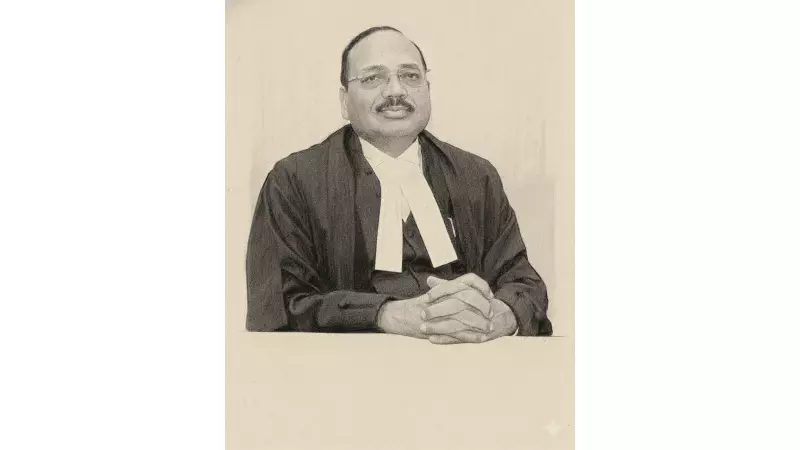
Justice Surya Kant is poised to assume the role of India's 53rd Chief Justice on November 24, 2025, marking the beginning of a significant 15-month tenure that will extend until February 9, 2027. His appointment comes following the retirement of incumbent CJI B R Gavai, bringing with it an extended period of judicial leadership at the Supreme Court.
Landmark Cases Awaiting CJI Surya Kant's Attention
The new Chief Justice will confront numerous high-profile constitutional and social cases during his relatively long tenure. Having already contributed to several significant decisions as a Supreme Court judge, Justice Kant's leadership is expected to navigate critical issues spanning constitutional law, cyber legislation, criminal justice, and electoral integrity.
Electoral Roll Revisions and State Elections
One of the immediate cases before Justice Kant involves the Kerala government's plea concerning the Special Intensive Revision (SIR) of electoral rolls. On November 21, a bench headed by Justice Kant issued notices regarding the state's request to postpone the exercise until after local body elections scheduled for next month.
The matter is set for hearing on November 26 before the new CJI's bench. This follows his July ruling in a similar Bihar case, where he permitted the Election Commission to continue using Aadhaar and voter cards for enumeration while maintaining judicial oversight.
Constitutional Challenge to Talaq-e-Hasan
In a significant development for Muslim personal law, a three-judge bench led by Justice Kant has indicated that a PIL challenging the constitutional validity of Talaq-e-Hasan may require consideration by a five-judge Constitution bench. The November 19 hearing involved journalist Benazeer Heena's petition against this form of divorce.
The court has directed parties to submit brief notes outlining substantial legal questions, with further hearing scheduled for November 26. This case could potentially reshape Islamic divorce practices in India if referred to a larger bench.
Builder-Bank Collusion Investigation
Justice Kant's bench has previously authorized expanded CBI investigation into alleged collusion between financial institutions and real estate developers. In September, the court permitted six additional cases beyond the 22 already registered, addressing complaints from over 1,200 homebuyers primarily from NCR regions.
These homebuyers alleged being forced to pay EMIs despite not receiving flat possession from builders. The ongoing CBI probe now encompasses projects from NCR to Mumbai, Bengaluru, Kolkata, Mohali, and Allahabad.
Social Media Regulation and Free Speech
The new CJI will also oversee matters concerning social media content regulation, including cases involving stand-up comedian Samay Raina and YouTuber Ranveer Allahbadia. Justice Kant previously criticized the "pervert mind and perversion" displayed in controversial content during India's Got Latent show.
In August, the Supreme Court directed the central government to submit draft guidelines for regulating social media content, indicating the court's serious approach to balancing free speech and content regulation in digital spaces.
Judicial Administration Reforms
Justice Kant has demonstrated particular concern about judicial efficiency, notably commenting on delayed judgment pronouncements by high courts. During August hearings concerning Jharkhand High Court's failure to deliver verdicts for two to three years after reserving judgments, he emphasized that "people need judgments, they are not concerned about jurisprudence."
The court has sought information from all high courts regarding pending judgment pronouncements, making this another crucial administrative matter for the new CJI.
Constitutional and Humanitarian Challenges
Other significant cases include the Rohingya refugee status determination, where Justice Kant's bench agreed in July to examine whether Rohingyas should be classified as refugees or illegal immigrants, and whether indefinite detention is permissible.
The sedition law review represents another constitutional challenge, with Justice Kant's 2022 bench having suspended all pending sedition cases until the government re-examines Section 124A of IPC. The constitutional validity of this colonial-era provision now awaits final determination during his tenure.
Combating Digital Financial Crimes
Justice Kant has shown proactive stance against cybercrimes, taking suo motu cognizance of digital arrest scams that defrauded a senior citizen couple from Ambala of approximately Rs 1 crore. On October 27, his bench issued notices to all states and union territories seeking details of registered FIRs in such cases, while transferring investigations to CBI.
This demonstrates the court's commitment to addressing emerging digital crimes that exploit vulnerable citizens through sophisticated technological means.
Justice Surya Kant brings substantial judicial experience to his new role, having begun legal practice in Hisar in 1985. He was appointed permanent judge of Punjab and Haryana High Court in 2004, served as Chief Justice of Himachal Pradesh High Court in 2018, and was elevated to Supreme Court in 2019. His extensive background across multiple judicial roles positions him well to handle the diverse and complex cases awaiting the Supreme Court.





